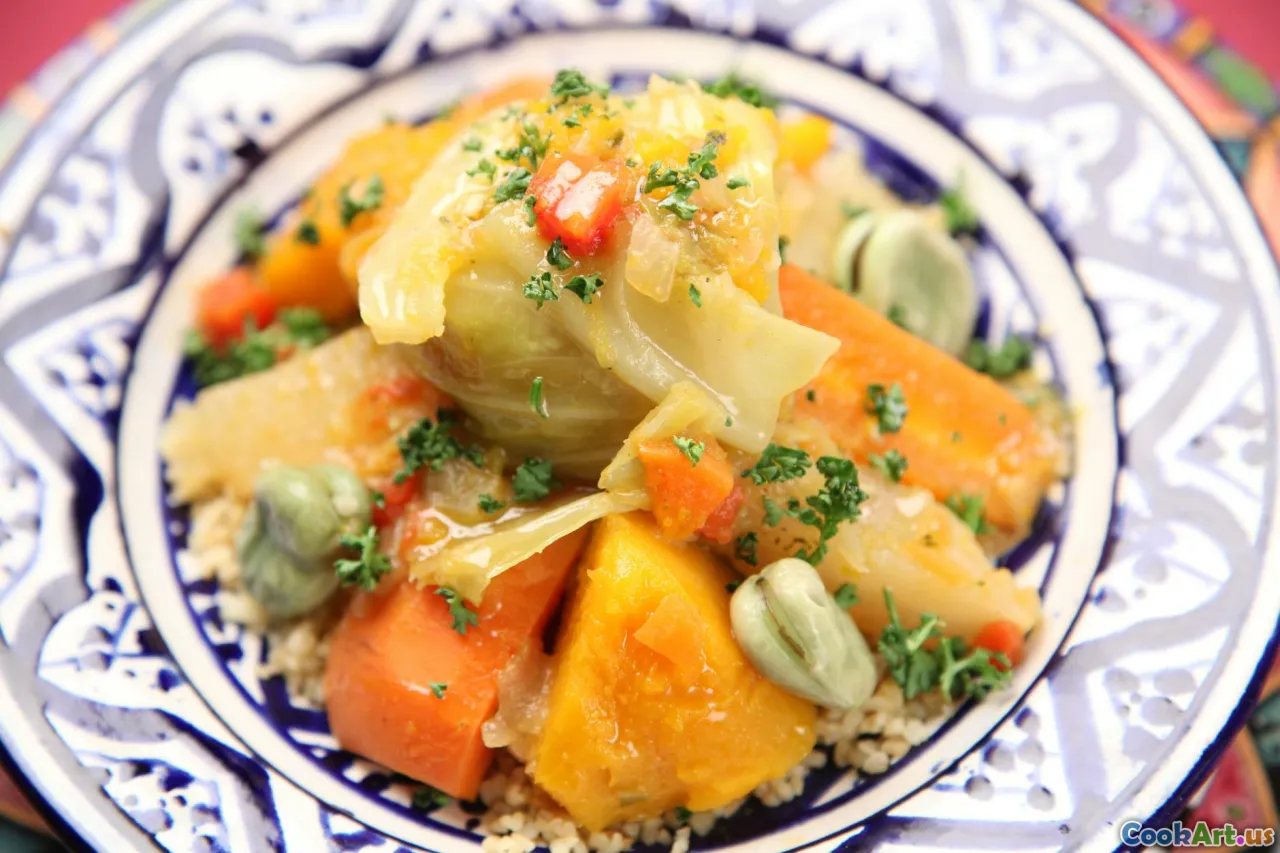Herbs and Flavors of Morocco
8 min read Discover the vibrant herbs and bold flavors that define Moroccan cuisine, blending history, culture, and sensory delight in every dish. April 23, 2025 13:55
Herbs and Flavors of Morocco
Moroccan cuisine is an intoxicating tapestry woven from centuries-old traditions, vibrant markets, and a rich landscape that offers an abundance of aromatic herbs and spices. It’s a cuisine that does more than simply nourish; it awakens the senses, evokes history, and invites a journey into the heart of North Africa’s soul. To truly appreciate Moroccan food, one must understand the herbs and flavor combinations that make it so uniquely captivating.
The Cultural Significance of Herbs in Morocco
In Morocco, herbs are not just ingredients; they are sacred elements intertwined with daily life, spirituality, and social customs. From the bustling souks of Marrakech to the tranquil rural villages, vibrant stalls overflow with fresh herbs—each with its own story and purpose. Moroccan herbs symbolize hospitality, health, and tradition, often passed down through generations.
The use of herbs reflects a holistic approach to cooking, where flavor, health, and cultural identity converge. The Moroccan philosophy of food emphasizes balance—balancing heat and coolness, sweetness and bitterness, earthiness and freshness—all achieved through the artful use of herbs and spices.
The Heart of Moroccan Flavors: Essential Herbs and Spices
1. Cilantro (Coriander Leaves)
Cilantro is a cornerstone in Moroccan cooking. Its bright, citrusy aroma enlivens tagines, salads, and stews. Fresh cilantro leaves are often used as a finishing touch, sprinkled over dishes to add a burst of freshness that contrasts beautifully with the deep, slow-cooked flavors.
2. Parsley
Parsley, particularly the flat-leaf variety, is ubiquitous in Moroccan cuisine. Its clean, grassy flavor acts as a balancing agent, providing a fresh counterpoint to richer ingredients. It’s a key player in Moroccan salads and is often combined with cilantro in herb mixes.
3. Mint
Mint is almost sacred in Morocco. Its cool, sweet aroma is found in teas, salads, and even savory dishes. Moroccan mint tea, famously known as ‘Moroccan whisky,’ is infused with fresh mint leaves, symbolizing hospitality and friendship.
4. Saffron
Saffron’s golden hue and subtle, honeyed flavor elevate many Moroccan dishes, from couscous to rice pilafs. It’s a luxurious spice that signifies celebration and opulence.
5. Ras El Hanout
This legendary spice blend, meaning ‘Top of the Shop,’ combines a multitude of herbs and spices like cinnamon, cumin, coriander, and cardamom. It encapsulates the essence of Moroccan flavor—complex, warm, and intoxicating.
6. Bay Leaves
Bay leaves impart a subtle earthiness to slow-cooked dishes, enhancing the depth of flavor in tagines and soups.
7. Cinnamon
Cinnamon isn’t just for desserts in Morocco. It’s used in savory dishes, too, adding warmth and a hint of sweetness that pairs beautifully with meat and vegetable stews.
8. Ginger and Turmeric
Both roots are vital for their pungent, earthy flavors and health benefits. They’re often used together in tagines and marinades, creating layers of warmth and vibrant color.
Sensory Experiences and Culinary Techniques
Moroccan herbs are used with precision and reverence, often layered to build complex flavor profiles. For instance, a traditional chicken tagine might start with a base of onion, garlic, and ginger, followed by turmeric and saffron, then topped with fresh cilantro and parsley just before serving.
The aroma that wafts from Moroccan kitchens is nothing short of magical. The scent of cinnamon, cumin, and mint mingling in the air creates an inviting atmosphere—an olfactory invitation to indulge.
Textures also play a role—fresh herbs add a crisp, vibrant contrast to the tender, slow-cooked meats and vegetables.
Personal Reflection:
I remember my first encounter with Moroccan herbs vividly. Sitting in a bustling medina stall, I was handed a small bundle of fresh cilantro and mint, their fragrances immediately awakening my senses. I watched as a vendor expertly layered herbs into a steaming tagine, the aromas swirling around me like a warm embrace. That experience reinforced the idea that Moroccan cuisine isn’t just about ingredients; it’s about tradition, community, and the celebration of life’s flavors.
Traditional Dishes Highlighting Moroccan Flavors
- Chicken Tagine with Preserved Lemons and Olives: A fragrant, savory stew showcasing the harmony of herbs, lemon, and spices.
- Moroccan Couscous: Fluffy grains infused with saffron and topped with a medley of vegetables and herbs.
- Bastilla: A savory-sweet pie flavored with cinnamon, herbs, and almonds.
- Harira Soup: A hearty tomato-based soup seasoned with herbs and spices, often consumed during Ramadan.
The Modern Revival of Moroccan Herbs
Today, Moroccan herbs and flavors are experiencing a renaissance beyond North Africa. Chefs worldwide are inspired by the bold, complex profiles, incorporating Moroccan spices into contemporary cuisines. This global appreciation underscores the universal appeal of Morocco’s herbal palette—its ability to evoke warmth, comfort, and adventure in every bite.
In culinary innovation, chefs experiment with herb-infused oils, herbal teas, and fusion dishes, all while respecting the centuries-old traditions that define Moroccan flavor mastery.
Final Thoughts
Exploring the herbs and flavors of Morocco is more than a gastronomic journey; it’s an immersion into a culture that venerates the art of balancing nature’s bounty. From the fragrant markets to the simmering tagines, every herb tells a story—of history, geography, and human connection.
So next time you spice up your cooking, consider the Moroccan way—where herbs are not just ingredients but the soul of the dish, whispering tales of distant deserts, mountain herbs, and ancient traditions. Embrace these flavors, and let them transport your senses to the vibrant, timeless land of Morocco.









